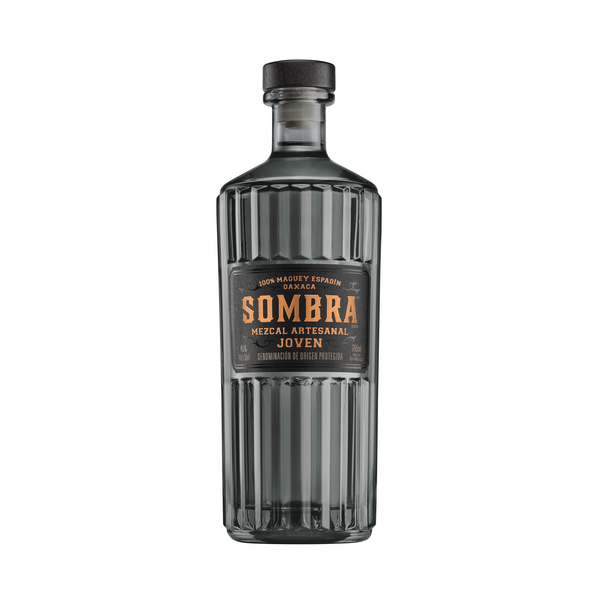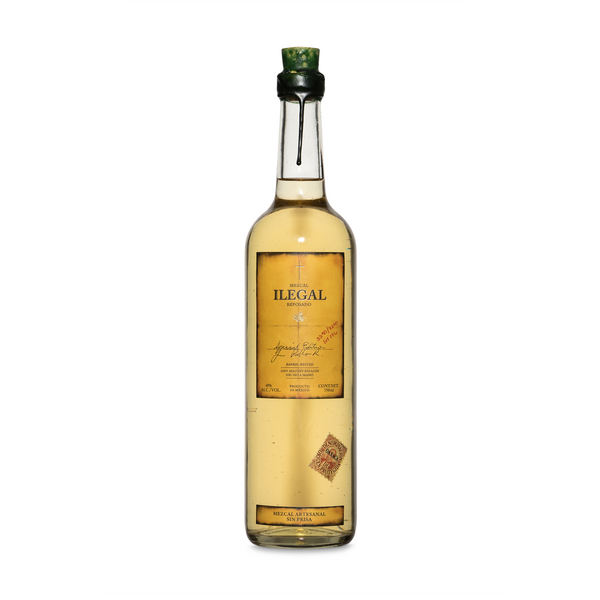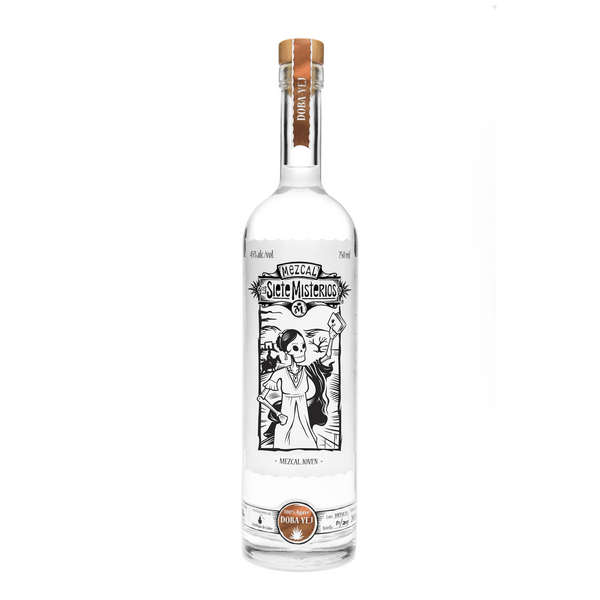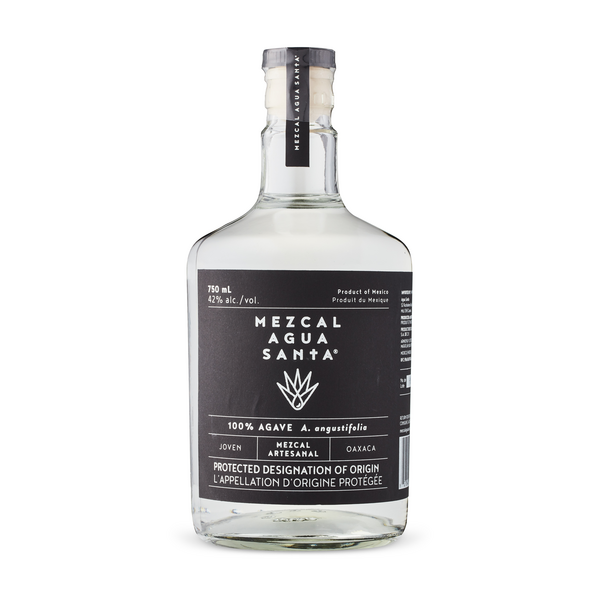-
 56.3 Million bottles delivered
56.3 Million bottles delivered
-
 30% Savings vs our competitors
30% Savings vs our competitors
-
 100% Canadian
100% Canadian
 56.3 Million bottles delivered
56.3 Million bottles delivered
 30% Savings vs our competitors
30% Savings vs our competitors
 100% Canadian
100% Canadian
- Alcohol Delivery
-
Beer
- All Beer
- Ale
- Show All
- Altbier
- Amber
- American IPA
- American Pale
- Belgian
- Belgian Strong
- Blonde
- Brown
- Cream
- Dark
- Double IPA
- Draught
- Dry
- English Bitter Ale
- English Pale Ale
- Flavoured & Spiced
- Fruit
- Golden
- Hazy DIPA
- Hazy IPA
- Honey
- Imperial IPA
- IPA
- Lagered
- Light
- New England IPA
- Other
- Pale
- Pilsner
- Red
- Red Ipa
- Saison
- Session IPA
- Sour
- Stout
- Stout & Porter
- Stout & Porter
- Strong
- Triple IPA
- West Coast IPA
- Wheat
- Wheat & Rye
- White IPA
- Cider
- Gifts and Samplers
- IPA
- Lager
- Light
- Malt
- Mixed Case
- Non-Alcoholic & Specialty
- Other
- Pale
- Porter
- Radler/Shandy
- Seltzer
- Specialty
- Specialty Beer
- Stout
- Beer Delivery Cities
-
Wine
- All Wine
- Champagne
- Fortified Wine
- Gifts and Samplers
- Icewine
- Red Wine
- Show All
- Agiorgitiko
- Agiorgitiko(St.George)
- Agiorgitiko/Cabernet Sauvignon
- Aglianico
- Alentejo
- Alicante
- Alicante Blend
- Amarone
- Aragonés Blend
- Arinto Blend
- Baco Noir
- Barbaresco
- Barbera
- Bardolino/Valpolicella
- Barolo
- Beaujolais
- Blaufränkisch
- Blend
- Blend - Cabernet
- Blend - Meritage
- Blend - Other
- Blended Table Red
- Bobal
- Bonarda
- Bordeaux
- Bordeaux Red
- Brachetto
- Brunello
- Burgundy
- Cabernet Franc
- Cabernet Franc Blend
- Cabernet Franc/Cabernet Sauvignon
- Cabernet Franc/Merlot
- Cabernet Merlot
- Cabernet Sauvignon
- Cabernet Sauvignon Blend
- Cabernet Sauvignon/Agiorgitiko
- Cabernet Sauvignon/Cabernet Franc
- Cabernet Sauvignon/Cabernet Franc/Petit Verdot
- Cabernet Sauvignon/Malbec
- Cabernet Sauvignon/Merlot
- Cabernet Sauvignon/Merlot/Cabernet Franc
- Cabernet Sauvignon/Petit Verdot
- Cabernet Sauvignon/Sangiovese
- Cabernet Sauvignon/Shiraz
- Cabernet Sauvignon/Shiraz/Merlot
- Cabernet Sauvignon/Sumoll
- Cabernet Sauvignon/Syrah
- Cabernet Sauvignon/Syrah/Carmenère
- Cabernet Shiraz Merlot
- Cabernet/Merlot
- Cannonau (Grenache)
- Carignan
- Carignan Blend
- Carignan/Grenache
- Carignan/Grenache/Syrah
- Carmenère
- Carmenère Blend
- Carmenère/Syrah
- Castelão Blend
- Catarratto
- Chardonnay Blend
- Châteauneuf-du-Pape
- Chianti
- Cinsault
- Clarete
- Corvina Blend
- Corvina/Raboso/Refosco
- Corvina/Rondinella
- Corvina/Rondinella/Molinara
- Corvina/Rondinella/Sangiovese
- DAO
- Dolcetto
- Douro
- Durif
- Feteasca Neagra
- Frappato
- Gamay
- Garnacha
- Graciano
- Grenache
- Grenache Blend
- Grenache Noir Blend
- Grenache/Carignan
- Grenache/Mourvèdre
- Grenache/Shiraz
- Grenache/Shiraz/Zinfandel
- Grenache/Syrah
- Grenache/Syrah/Carignan
- Grenache/Syrah/Mourvèdre
- Grenache/Tempranillo
- Kadarka
- Kékfrankos
- Lambrusco
- Limniona
- Limniona Blend
- Maceratino
- Madeira
- Malbec
- Malbec Blend
- Malbec/Cabernet Franc
- Malbec/Cabernet Sauvignon
- Malbec/Merlot
- Malvasia
- Maréchal Foch
- Mavrodaphne
- Mavrotragano
- Mencia
- Meritage
- Merlot
- Merlot Blend
- Merlot/Cabernet Franc
- Merlot/Cabernet Sauvignon
- Merlot/Cabernet Sauvignon/Cabernet Franc
- Merlot/Malbec
- Merlot/Sangiovese
- Monastrell (Mourvèdre)
- Monastrell (Mourvèdre) Blend
- Montepulciano
- Montepulciano/Sangiovese
- Mourvèdre
- Mourvèdre Blend
- Mourvèdre/Syrah/Grenache Noir
- Muscadet
- Muscatini
- Named Varietal Blends-Red
- Nebbiolo
- Nebbiolo Blend
- Nebbiolo/Barbera
- Negrette
- Negro Amaro
- Negroamaro
- Nerello Mascalese
- Nerello Mascalese Blend
- Nero D'Avola/Syrah
- Nero d'Avola
- Nero d'Avola Blend
- Nero di Troia
- Other
- Other Red Varietal (Single)
- País
- Passerina
- Perricone
- Petit Verdot
- Petit Verdot/Cabernet Sauvignon
- Petite Sirah
- Petite Sirah Blend
- Piedirosso/Aglianico
- Pinot Noir
- Pinot Noir Blend
- Pinot Noir/Gamay
- Pinotage
- Plavac Mali
- Primitivo
- Primitivo Blend
- Primitivo/Negroamaro
- Pugnitello Blend
- Red - Full Bodied
- Red - Light Fruity
- Red - Medium Bodied
- Red - Sweet
- Red Blend
- Red Table Wines (Unnamed Blends)
- Refosco
- Refosco dal Peduncolo Rosso
- Regional Blended Red
- Rhône
- Rioja
- Ripasso
- Rubicon IGP
- Sagrantino
- Sangiovese
- Sangiovese Blend
- Sangiovese/Cabernet Sauvignon
- Sangiovese/Cabernet Sauvignon/Merlot
- Sangiovese/Canaiolo
- Sangiovese/Merlot
- Saperavi
- Schwarzriesling
- Sciaccarello
- Shiraz Blend
- Shiraz/Cabernet
- Shiraz/Cabernet Sauvignon
- Shiraz/Grenache
- Shiraz/Grenache/Mourvèdre
- Shiraz/Malbec
- Shiraz/Merlot/Cabernet
- Shiraz/Syrah
- Shiraz/Viognier
- Sparkling
- Syrah Blend
- Syrah/Carignan
- Syrah/Grenache
- Syrah/Malbec
- Syrah/Mourvèdre
- Syrah/Mourvèdre/Grenache
- Syrah/Mouvèdre/Grenache
- Syrah/Shiraz
- Syrah/Viognier
- Syrah/Xinomavro
- Tannat Blend
- Tannat/Cabernet Franc
- Tannat/Cabernet Franc/Cabernet Sauvignon
- Tempranillo
- Tempranillo Blend
- Tempranillo/Cabernet Sauvignon
- Tempranillo/Graciano
- Tempranillo/Grenache
- Tinta de Toro
- Tinta Fina
- Touriga Franca Blend
- Touriga Nacional
- Touriga Nacional Blend
- Touriga Nacional/Tinta Roriz
- Traminer
- Trousseau
- Valpolicella
- Vin Santo
- Vranac
- Xarel-lo
- Xinomavro
- Zinfandel
- Zinfandel Blend
- Zinfandel/Petite Sirah
- Zweigelt
- Rosé Wine
- Show All
- Blend
- Blended Table Rose
- Cabernet Franc
- Cabernet Franc Blend
- Cabernet Sauvignon/Shiraz/Merlot
- Cabernet/Merlot
- Commandaria
- Garnacha
- Grenache
- Grenache Blend
- Grenache/Shiraz
- Grenache/Syrah
- Kotsifali/Mandilari
- Moscato
- Negrette Blend
- Other
- Pinot Blanc
- Pinot Grigio
- Pinot Gris Blend
- Pinot Noir
- Pinot Noir Blend
- Rosato
- Rosé
- Rosé - Dry
- Rosé - Sweet
- Viura (Macabeo)
- Xinomavro
- Sake & Rice Wine
- Sparkling Wine
- Specialty Wine
- White Wine
- Show All
- Albana
- Albarossa
- Aligoté
- Alvarinho
- Alvarinho Blend
- Alvarinho/Albariño
- Antão Vaz Blend
- Arinto Blend
- Arneis
- Assyrtiko
- Assyrtiko/Athiri
- Athiri
- Athiri/Malagousia/Muscat
- Avesso
- Blend
- Blend - Other
- Blend - Semillon/Sauvignon Blanc
- Blended Table White
- Bordeaux
- Burgundy
- Carricante/Catarratto
- Chardonnay
- Chardonnay Blend
- Chardonnay Musqué
- Chardonnay/Sauvignon Blanc
- Chardonnay/Sémillon
- Chardonnay/Viognier
- Chenin Blanc
- Chenin Blanc Blend
- Clairette Blend
- Cortese
- Encruzado
- Falanghina
- Flavoured Wine
- Friulano
- Fruit Wine
- Fume Blanc
- Furmint
- Garganega
- Garganega Blend
- Garganega/Chardonnay
- Garganega/Trebbiano
- Garnacha
- Gewürztraminer
- Gewürztraminer/Riesling
- Godello
- Grasevina
- Grüner Veltliner
- Grenache Blanc
- Grenache Blanc Blend
- Grillo
- Gros Manseng
- Hárslevelu
- Loire
- Loureiro
- Malagousia
- Malvasia
- Marsanne
- Marsanne Blend
- Marsanne/Roussane
- Melon de Bourgogne
- Moscatel
- Moscato
- Moschofilero
- Mtsvane
- Muscat
- Named Varietal Blends-White
- Other
- Other White Varietals (Single)
- Pecorino
- Picpoul Blanc
- Pinot Bianco
- Pinot Blanc
- Pinot Grigio
- Pinot Gris
- Pinot Gris Blend
- Pinot Gris/Pinot Grigio/Rulander
- Regional Blended White
- Retsina
- Rhône
- Ribolla Gialla
- Riesling
- Riesling Auslese
- Riesling Beerenauslese
- Riesling Blend
- Riesling Kabinett
- Riesling Spätlese
- Rkatsiteli
- Rkatsiteli/Mtsvane
- Roter Veltliner
- Roupeiro blend
- Roussanne Blend
- Roussanne/Grenache
- Sangiovese Blend
- Santenay
- Sauternes
- Sauvignon Blanc
- Sauvignon Blanc Blend
- Sauvignon Blanc/Chardonnay
- Sauvignon Blanc/Sémillon
- Savagnin
- Savatiano
- Sémillon
- Sémillon Blend
- Sémillon/Sauvignon Blanc
- Sémillon/Sauvignon Blanc/Muscadelle
- Scheurebe
- Semillon/Riesling
- Soave
- Tamaioasa Romaneasca
- Tokaj
- Torrontes
- Traminer
- Trebbiano
- Tsipouro
- Verdejo
- Verdejo Blend
- Verdelho
- Verdicchio
- Vermentino
- Vernaccia
- Vidal
- Vidal Blend
- Vinho Verde
- Viognier
- Viognier Blend
- Viognier/Marsanne
- Viura (Macabeo)
- Viura Blend
- White - Fruity
- White - Full Bodied
- White - Light Dry
- White - Sweet
- White Blend
- White Table Wines (Unnamed Blends)
- Xarel-lo
- Xinomavro
- Xinomavro Blend
- Xynisteri
- Wine Delivery Cities
- Liquor
- Staff Picks
- Gift Ideas
-
Promotions
- Delivery Deals
- Free Stuff
- Value Adds
-
Bonus Points
- 18.8 Gin
- 18.8 Vodka
- Absolut Grapefruit Vodka
- Absolut Juice Apple Edition
- Absolut Juice Pear And Elderflower
- Absolut Juice Strawberry Edition
- Absolut Mandrin Vodka
- Absolut Rainbow Edition
- Cabot Trail Maple Cream
- Corona
- Flor de Caña 12 Year Rum
- Jameson Caskmates Stout Irish Whiskey
- Jameson Cold Brew Irish Whiskey
- Michelob Ultra
- Products On Sale
- Beer Promotions
-
Liquor Promotions
- Polar Ice Orange Blizzard Flavoured Vodka
- Polar Ice Berry Blizzard RTD 473ml
- Skrewball Peanut Butter Whiskey 50ml
- Skrewball 50mL
- Polar Ice Orange Blizzard 50mL
- Skrewball 50mL
- Skrewball 50ml
- 18.8 Gin
- 18.8 Vodka
- Absolut Grapefruit Vodka
- Absolut Juice Apple Edition
- Absolut Juice Pear And Elderflower
- Absolut Juice Strawberry Edition
- Absolut Mandrin Vodka
- Absolut Rainbow Edition
- Cabot Trail Maple Cream
- Flor de Caña 12 Year Rum
- Jameson Caskmates Stout Irish Whiskey
- Jameson Cold Brew Irish Whiskey
- On Sale Liquor
- Wine Promotions
- Become a Driver
National Mezcal Day
Occasions
April
May
May the 4th Star Wars Day
Orange Juice Day
Cinco de Mayo
National Beverage Day
Beer Pong Day
International Sauvignon Blanc Day
National Cosmo Day
National Have a Coke Day
National Moscato Day
Mother's Day
World Cocktail Day
National Mimosa Day
Pinot Grigio Day
World Whisky Day
World Paloma Day
Chardonnay Day
National Wine Day
National Mint Julep Day
June
National Moonshine Day
World Cider Day
National Cognac Day
National Bubbly Day
World Gin Day
National Rosé Day
National Bourbon Day
National Old Fashioned Day
Father's Day
International Drink Chenin Blanc Day
National Martini Day
First day of Summer
World Lambrusco Day
National Limoncello Day
International Rosé Day
PIneapple Day
July
Canada Day
Anisette Day
Independence Day
National Piña Colada Day
National Mojito Day
National Michelada Day
National Grand Marnier Day
National Daiquiri Day
National Tequila Day
National Wine and Cheese Day
National Scotch Day
National Shiraz Day
August
IPA Beer Day
International Albariño Day
Caribbean Carnival Weekend 2023
National White Wine Day
Civic Holiday
National Mead Day
International Beer Day
National Prosecco Day
National Rum Day
Pinot Noir Day
International Whisky Sour Day
National Red Wine Day
National Mai Tai Day
International Cabernet Day
September
National Chianti Day
National Beer Lovers Day
National Sour Beer Day
International Box Wine Day
National Creme de Menthe Day
International Grenache Day
National Rum Punch Day
Oktoberfest
National Horchata Day
National Drink Beer Day
Hot Mulled Cider Day
October
National Vodka Day
Canadian Beer Day
International Pinotage Day
Thanksgiving
National Liqueur Day
International Gin & Tonic Day
National Mezcal Day
Carignan Day
National American Beer Day
Global Champagne Day
Halloween
November
International Stout Day
International Merlot Day
National Shot Day
National Harvey Wallbanger Day
International Tempranillo Day
Zinfandel Day
International Happy Gose Day
National Apple Cider Day
Beaujolais Nouveau Day
DrinksGiving
December
Cabernet Franc Day
National Repeal Day
National Bartender Day
National Lager Day
National Screwdriver Day
International Tea Day
National Sangria Day
National Coquito Day
National Eggnog Day
January
February
March
Mezcal is a unique and artisanal distilled spirit originating from Mexico, known for its distinctive smoky flavor and rich cultural heritage.
Production: Mezcal is made primarily from the agave plant, which is native to Mexico. While tequila is a type of mezcal made specifically from the blue agave plant, mezcal can be produced from various agave varieties. The process of making mezcal involves harvesting the agave's mature heart, or "piña," roasting it in underground pits or ovens, and then fermenting and distilling the juice.
Smoky Flavor: One of the most distinctive characteristics of mezcal is its smoky flavor. This smokiness is a result of the traditional roasting process, where the agave piñas are cooked in earthen pits lined with rocks and wood, often including mesquite or oak, which imparts a smoky aroma and taste to the agave.
Diversity of Agave: Mezcal producers use various types of agave plants, each contributing unique flavors and characteristics to the final spirit. Some common agave varieties used for mezcal production include Espadín, Tobalá, and Tobaziche, among others.
Artisanal Production: Many traditional mezcal producers follow time-honored, labor-intensive methods passed down through generations. This includes crushing the roasted agave with stone wheels, fermenting in wooden vats, and distilling in copper or clay pot stills. This artisanal approach contributes to the diverse and complex flavors found in mezcal.
Geographic Origin: Mezcal is primarily produced in certain regions of Mexico, with Oaxaca being one of the most renowned and significant mezcal-producing areas. However, it is also made in other Mexican states, such as Durango, Guerrero, Michoacán, and more.
Cultural Significance: Mezcal has deep cultural and historical significance in Mexico. It has been consumed for centuries and is often associated with rituals, celebrations, and social gatherings. In some regions, mezcal production and consumption are integral to the local culture.
Serving and Pairing: Mezcal can be enjoyed neat, sipped slowly to savor its complex flavors. It's also used in various cocktails, such as the classic "mezcal margarita" or enjoyed with traditional accompaniments like orange slices and salt with chili powder. Mezcal pairs well with a variety of foods, including grilled meats, cheeses, and spicy dishes.
Rising Popularity: Mezcal has experienced a surge in popularity globally, with many people appreciating its artisanal qualities, diverse flavor profiles, and cultural connections. In recent years, there has been an increase in craft and small-batch mezcal production.
Mezcal is not the same as tequila, although they are closely related spirits. Both mezcal and tequila are distilled alcoholic beverages made from agave plants. While they share some similarities as agave-based spirits, they are distinct in terms of the type of agave used, production regions, production methods, and flavor profiles. Mezcal is known for its smoky and diverse flavor profile, while tequila is recognized for its more straightforward and approachable taste.




